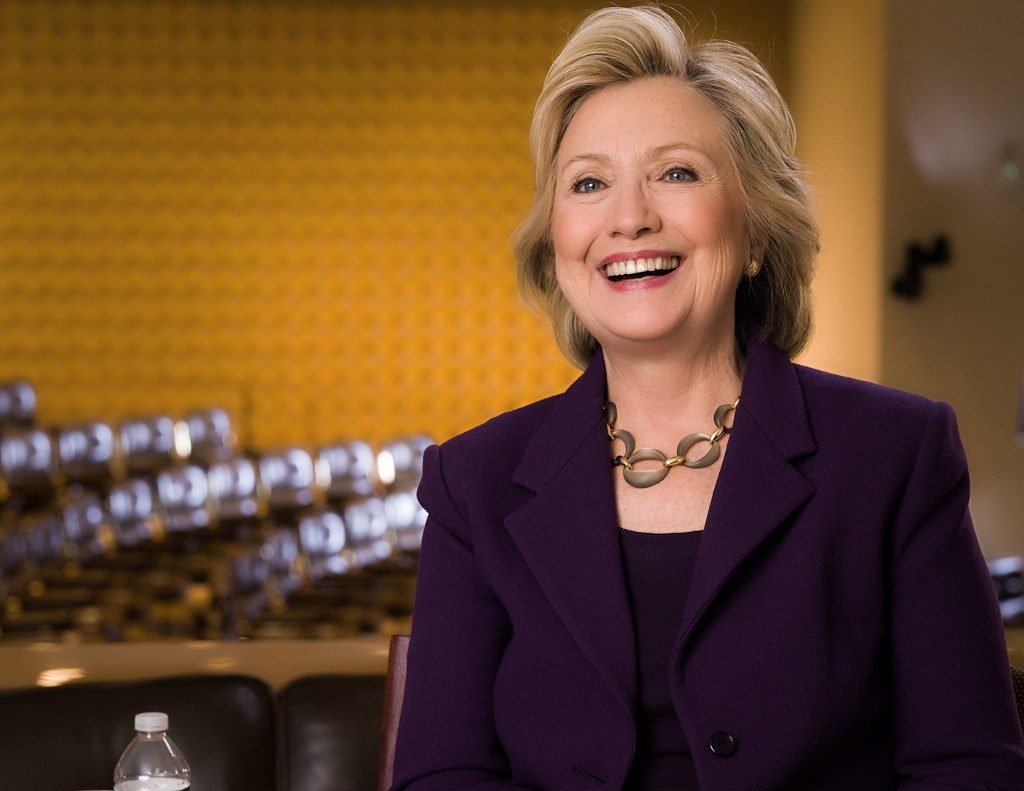Dyllan McGee is an Emmy Award-winning filmmaker and the founder and executive producer of “MAKERS,” an Emmy Award-nominated series on women in space, Hollywood, politics, war, comedy and business. Her executive producer credits include: “Gloria: In Her Own Words,” “The African Americans: Many Rivers to Cross” and “Teddy: In His Own Words.” (Press materials)
“MAKERS: Once and For All” will premiere at the 2015 DOC NYC Film Festival on November 19. The documentary is co-directed by Michael Epstein.
W&H: Please give us your description of the film playing.
DM: The film is about the irrepressible emergence of a global women’s movement and the breakthrough moment that was the UN Fourth World Conference on Women in Beijing in 1995. It was a time when women’s rights were not taken seriously in global affairs, or, for that matter, in domestic affairs in most countries. They were seen as marginal, a side issue.
But in September 1995, tens of thousands of activists, government leaders and grassroots women gathered in Beijing and forever changed the trajectory of women’s rights. Despite the many obstacles — torrential rains, Chinese state security, religious fundamentalists — they gave voice to the injustices and abuse that were women’s realities the world over, and they succeeded in getting nearly every government on earth to acknowledge and take action for women’s human rights.
The Beijing conference laid the foundation for global networks and a legal framework that has fueled the last 20 years of the struggle for women’s rights. It was a moment of great courage, collective action, urgency and momentum that needs to be reignited today.
W&H: What drew you to this story?
DM: “MAKERS” has produced seven films to date, all about women in America over the past 50 years. We had been wanting to tell a global story, and over and over, we were hearing from our MAKERS that the 4th World Conference on Women was the watershed moment for the emergence of a global women’s movement and was life-changing for everyone in attendance.
The more we learned about it, the more we saw that this was an enthralling and under-appreciated story, full of suspense, triumph and great relevance to today’s world. The fact that this year marked the 20th anniversary made it an opportune time to bring it to life.
W&H: What was the biggest challenge in making the film?
DM: Finding the archive to tell the story. Much of what happened at Beijing took place in conference rooms and was not heavily documented. It was also a challenge to tell the story from an international perspective and capture the wide spectrum of players who were there, from female prime ministers to the 20-something grassroots activists who couldn’t afford the plane ticket.
We were helped in part by the fact that the UN’s 20-year review of the conference took place last March, and it drew many international women who had attended Beijing to New York.
W&H: What do you want people to think about when they are leaving the theater?
DM: Technology over the past 20 years since Beijing has changed how we work together to implement change. The power of Beijing was the physical gathering of 47,000 individuals with a common purpose. To date, it was the largest international gathering of women ever. That doesn’t happen anymore. I hope people will leave inspired by the power of physical gatherings — I would love to get another Beijing-like event in the works.
On November 20, the film will be available on MAKERS.com, and through this we hope to inspire the largest virtual gathering of women.
W&H: What advice do you have for other female directors?
DM: Get final cut. That is essential.
W&H: What’s the biggest misconception about you and your work?
DM: Stories of social justice are what make me tick, but my goal in all of my work is really to entertain, because I believe that is how you make real impact. “MAKERS” tells stories about groundbreaking women, but our audience is almost 50% men — the stories we tell speak to a wide audience.
W&H: How did you get your film funded? Share some insights into how you got the film made.
DM: The film was fully funded by “MAKERS’” parent company AOL. Getting it funded was the magic combination of a lot of passion and enthusiasm on the part of the “MAKERS” team to take our platform of stories of American women to the next level by telling a global story and a visionary CEO, Tim Armstrong, who believed in the vision and made it happen.
W&H: Name your favorite woman-directed film and why.
DM: Currently, my most favorite film is Liz Garbus’ “What Happened, Miss Simone?” I adore Nina Simone’s music, and Liz captured the story brilliantly.







